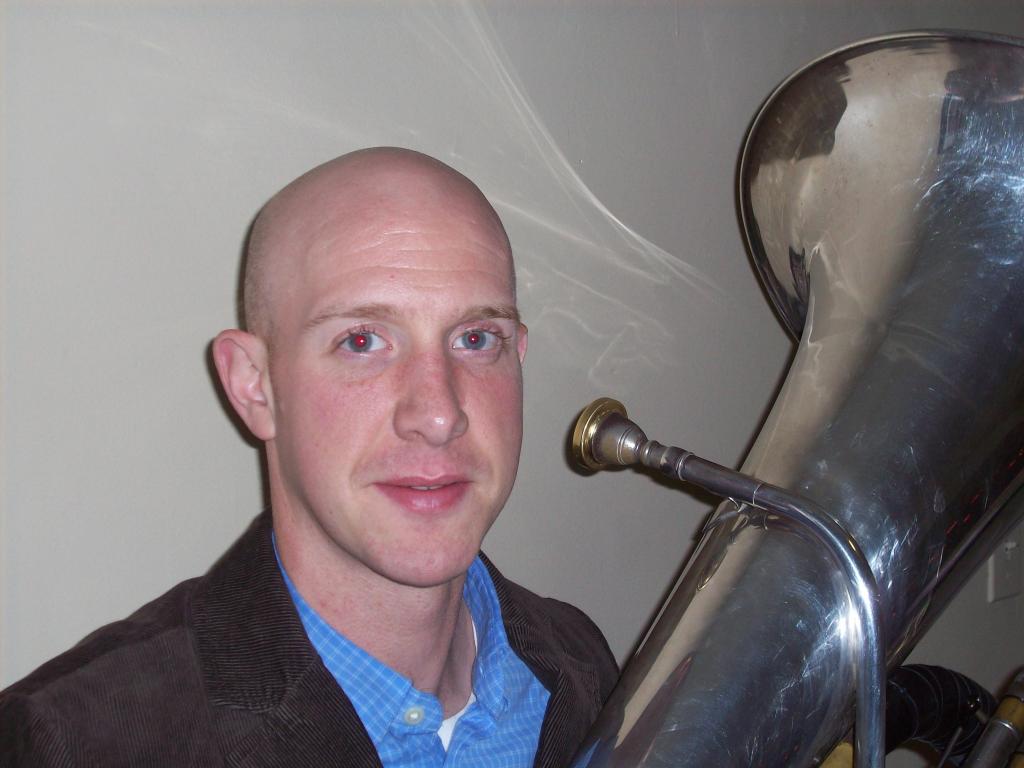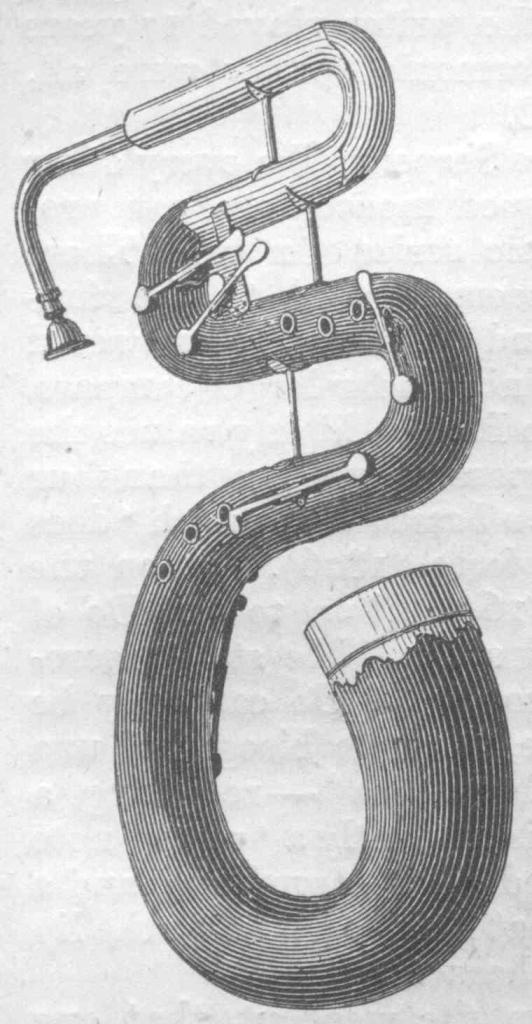Everybody knows what a tuba is. As usual, everyone is wrong.
There is no clear definition of the instrument, and there are more than a dozen that have been given the name. Wagner invented two of them so he could have an eight-voice bass choir.
Despite the children’s book ”Tubby the Tuba,” there aren’t many orchestral jokes involving the lowest-pitched member of the brass family. You don’t kid around with someone who, like the bass in a choir, carries the entire weight of the harmony on his back. Perhaps there would be more snickers if the tuba were known, as it used to be, as a large saxhorn.
The instrument that most people think of as a tuba, in marching bands and symphony orchestras, is (usually) a double-bass valved instrument of a type invented in Germany in the 1830s. The family can be recognized by its cup-shaped mouthpiece and wide conical bore.
Today’s tuba takes the place of the serpent, a bass horn shaped like its namesake in motion, invented sometime in the 16th century and widely used in church because of its dominating presence. (There was also a military version.) Berlioz, one of the first to use the modern tuba in his compositions, said the serpent would have been more appropriate for bloody druidical rites than the Mass.
Handel, upon hearing one in England, is reported to have said, in his heavy German accent, ”Well, that was not the serpent that tempted Eve.”
Like its modern counterpart, the serpent, in capable hands, could also produce soft, sweet tones and navigate rapid scales. These can be heard in Ralph Vaughan Williams’ ”Concerto for Tuba and Orchestra” (1954).
This Friday at Corthell Hall on the University of Southern Maine’s Gorham campus, concert-goers will be able to hear live what the solo tuba can do in the hands of a master: USM faculty member Dan Hunter. His recital, which begins at 8 p.m., is called ”Tuba: The Other Solo Voice.”
With pianist Sanae Kanda as accompanist, Hunter will perform works written originally for the tuba, including ”Sonata for Tuba and Piano” by Bruce Broughton and ”Three Miniatures for Tuba and Piano” by Anthony Plog.
”Bruce Broughton’s ‘Sonata for Tuba and Piano’ is a work that pushes the boundaries of what a tuba player can do,” Hunter said. ”It has a whimsical first movement, followed by a lyrical, sweet, yet intense second movement. The third movement is exciting, intricate and rhythmic. It has recently been turned into a full concerto for orchestra.”
Known best for his film compositions, Broughton wrote this piece for Los Angeles studio musician Tommy Johnson, who was heard most notably on the television series ”The Flintstones” and the film ”Jaws.”
Plog’s ”Three Miniatures for Tuba and Piano” was originally created for international tuba soloist and Indiana University Professor Dan Perantoni, Hunter said.
”This piece also earned me my scholarship to the Manhattan School of Music, where I received my master’s degree. It’s an example of what you would expect to hear from a trumpet or a violin, but is played by the tuba,” he said. ”It has a fast-paced, harmonically driven first movement. The second movement has an improvisatory feel, and sets up the audience for the excitement of the third movement. Since there is no real break before the third movement, it surprises with its rhythm and upbeat tempo.
”The piece culminates in a chaotic frenzy, with the tuba trying to keep pace with the velocity of the piano line at the end.”
Other works on the program include the second movement from the ”Concerto for Tuba” by James Barnes, ”Sonata for Tuba and Piano” by Paul Hindemith and ”Concerto in One Movement” by Alexey Lebedev.
Hunter has performed with such groups as the Portland Symphony, the Albany Symphony, the Vermont Symphony, the New Hampshire Music Festival Orchestra, the Cape Cod Symphony, the Boston Modern Orchestra Project, the Hillyerfest Orchestra and chamber groups including the Majestic Brass, Brass Connection, the Commonwealth Brass, the Quintessential Brass and the New England Brass. He has been a member of the Portland Brass Quintet since 2007.
Christopher Hyde is a writer and musician who lives in Pownal. He can be reached at:
classbeat@netscape.net
Send questions/comments to the editors.



